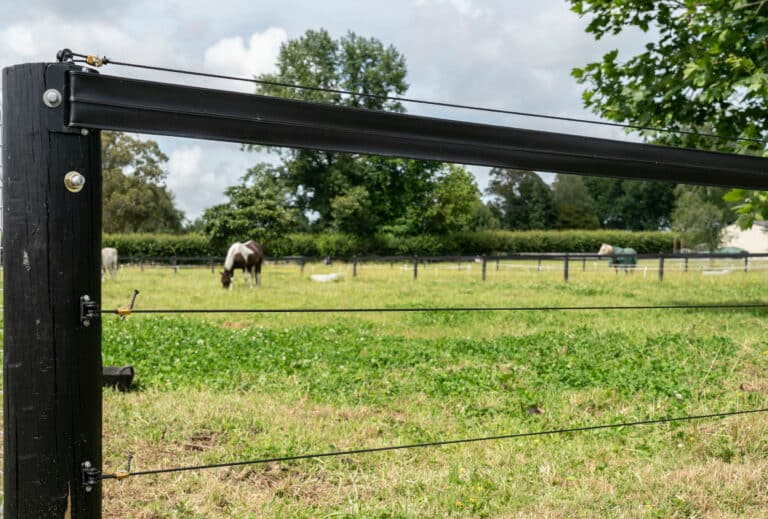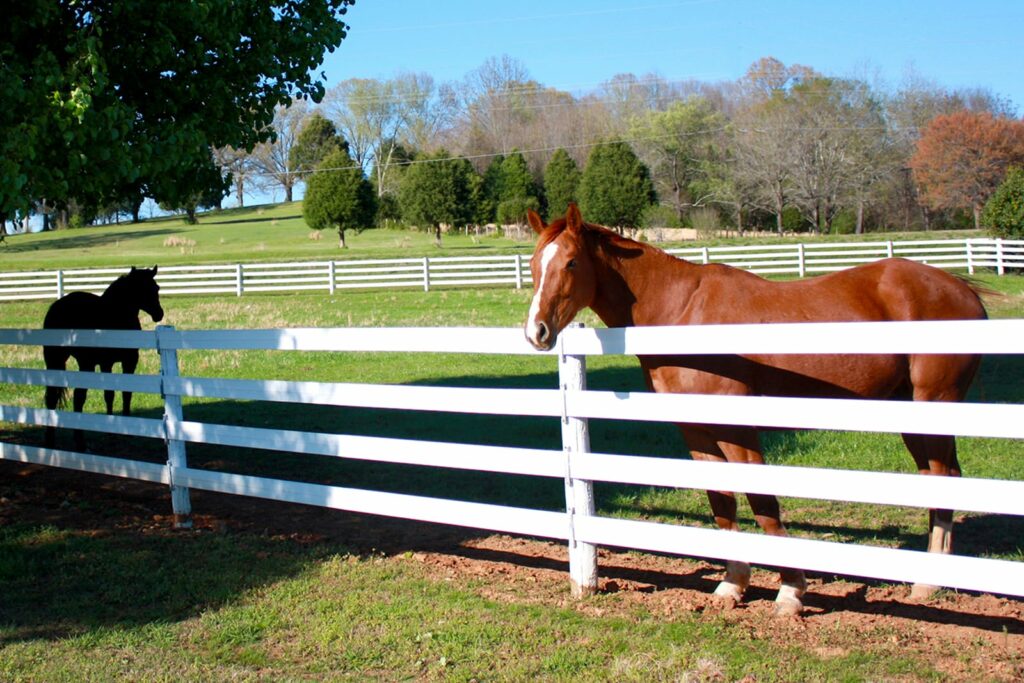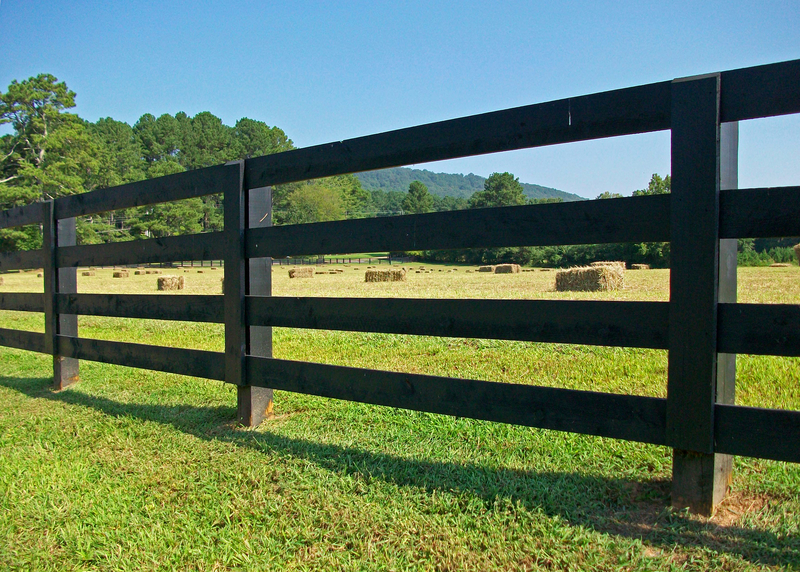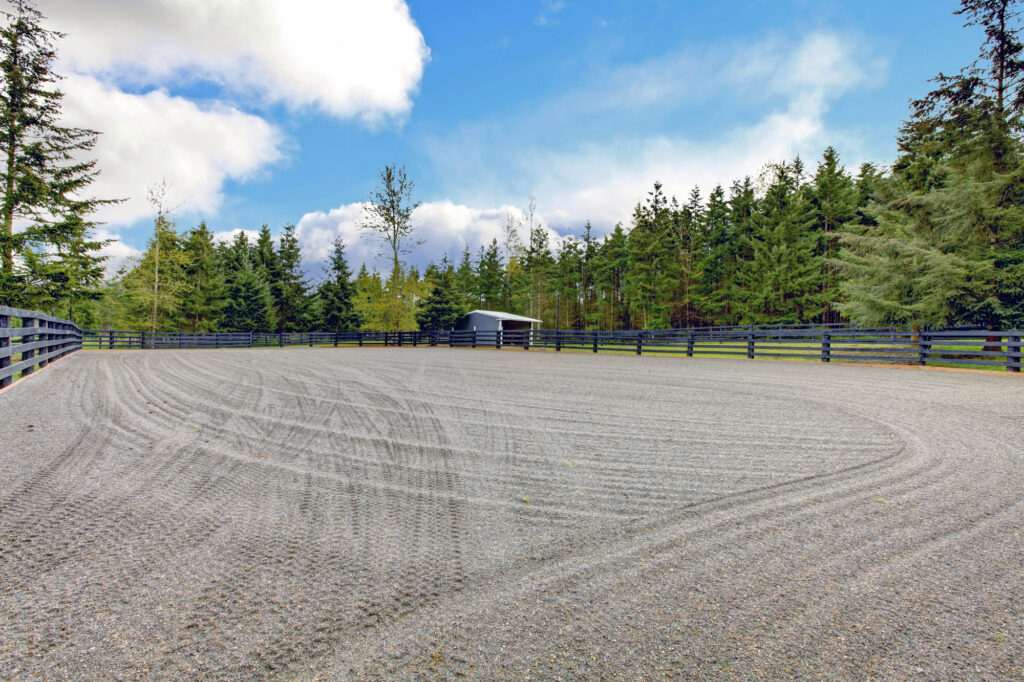Stock & Noble

Building a Safe Horse Fence: Should You Electrify or Not?
- BY Tripti Kakkar
When it comes to containing horses within a designated area, electric fences have become a popular choice among horse owners. The mild electric shock they provide acts as a deterrent, preventing horses from attempting to jump, push through, or break down conventional fences. This added security significantly reduces the risk of horses escaping and potentially getting injured or lost. However, there are some misconceptions surrounding the safety and effectiveness of electrified fences.
Are electric fences safe for horses?
Or Is electrifying your fence essential to make it safer for your horses?
At Stock & Noble, we provide the finest and safest fencing solutions to properties across Australia and New Zealand. EquiRope, Legacy Line Electric, and Horeserail HotTop Plus are some of our leading electric fencing products, that are globally successful and score high on horse safety. We have years of experience and expertise in helping our clients create safe and beautiful equine properties.
In this blog post, we aim to genuinely challenge the every day thinking we fear has crept into the industry and is leading to poor fencing decisions.
Once you are through with your reading, you will be well informed on the need, performance and role of electric fences in ensuring the safety of your favourite animals. You will have the clarity to decide whether your property needs an electric fence or not or better still, understand exactly the role that electrifying plays.
Misconception: Electric Fences Can Make a Fence Safe for Horses
Contrary to popular belief, electrifying a fence does not automatically make it safer for horses. It is a misconception that electrifying the fence will keep the horses safe.
In reality, the focus should be on building a safe horse fence even without the electric feature being turned on. Electrifying the fence primarily teaches horses to stay away, encouraging them to find alternative sources of entertainment and reducing the likelihood of them getting caught in the fence.
Addressing unsafe fencing practices
Unfortunately, there is a prevalent issue in the industry where some individuals put up relatively unsafe fences and then attempt to compensate for their shortcomings by electrifying them.
However, this approach can prove dangerous, especially during adverse weather conditions or unexpected events. If a horse were to run into an inadequately built fence in such situations, it could result in serious injuries. Therefore, it is essential to build a safety fence before considering electrification as an additional measure.
Ensuring Safe and Controlled Shocks
Concerns often arise regarding the safety and control of the electric shocks delivered by the fence. It is important to note that the energizer, not the electric fence itself, controls the amount of shock. Manufacturers design energizers to deliver controlled shocks that do not exceed a certain level, ensuring the well-being of the animals.
Advantages of Electric Fence for Horses
While not a safety feature in itself, there are certain benefits to electrifying a safe horse fence. These benefits include:
Preventing Fence Play
When horses receive a mild electric shock upon contact with the fence, they are less likely to engage in playful behaviours with it. This diversion reduces the risk of them getting entangled or injured.
Deter Horse Fights between Neighbouring Paddocks
If horses are inclined to engage in fights with the horse in the neighbouring paddock over the fence, electric fences can effectively discourage such behaviour.
Enhancing Fence Stability
Electrification discourages horses from pushing fence posts, thereby improving the overall stability of the enclosure.
Controlling Cribbing
Electric fences can help control cribbing behaviour in horses. The shock they receive when attempting to crib acts as a deterrent, promoting better overall health.
Reducing Maintenance Issues
By electrifying a fence, horses are less likely to lean, chew, or damage the structure, minimising the need for frequent repairs.
The Disadvantage of Electric Fences for Horses
While electrifying fences can be beneficial, it should not be seen as a comprehensive safety solution for horses.
Due to their instinctive flight response, horses are prone to running when they feel threatened, regardless of whether the fence is electric or not. In such situations, electric shocks can pose a continuous risk if the horse gets caught in the fence.
Therefore, electric fences should be considered as a tool for training horses, discouraging certain behaviours, and reducing maintenance issues. Property owners need to understand their goals and objectives before deciding to electrify their fences.
Making Electric Fencing Effective for Horses
To ensure the effectiveness of electric fencing for horses, consider the following guidelines:
Proper Insulator Attachment
Insulators should be securely attached to prevent nails or screws from falling onto the paddock, posing potential risks to the horses.
Adequate Earthing
Follow the basic rules of installation and maintenance to ensure that the electric fence system is adequately earthed, enabling it to function effectively in both wet and dry ground conditions.
Consultation with Experts
Seeking guidance from an energiser company or specialist can provide valuable insights. They can help you choose an energizer with double the capacity you need, ensuring consistent electric flow along the fence line. Additionally, consider future fencing plans for potential extensions.
Following Manufacturer’s Guidelines
Electric fences can involve technical complexities. It is crucial to carefully follow the manufacturer’s guide to correctly electrify the fence. Improper installation, especially with specialized products like equirope, can adversely affect the performance and lifespan of the fence.
Safe Horse Fencing: Electric or Not?
You are considering electrifying your horse fence and wanted to know if it’s safe for horses or not.
Now you know whether the fence is electric or not, the focus should be on choosing safe fencing materials such as Horserail, Premium Steel Post and Rail or other sturdy options that can provide a safe enclosure for horses.
It is crucial to prioritise the construction of a secure fence that can effectively contain the horses and minimise the risk of injuries. Electrification is simply an added step of horse management.
In summary, electric fences for horses can be a valuable tool when used in conjunction with a well-built and secure fence. It is important to debunk the myth that electric fences alone provide safety, as the focus should be on constructing a safe fence structure regardless of its electrification. Electric fences primarily serve to discourage horses from interacting with the fence and can provide benefits such as preventing fence play, enhancing stability, controlling cribbing, and reducing maintenance issues.
To ensure the effectiveness of electric fencing, proper installation and adherence to manufacturer guidelines are essential. Consulting with experts and following their advice can help in selecting the right energizer, ensuring adequate electric flow along the fence line. Additionally, proper insulator attachment and earthing play vital roles in maintaining the functionality of the electric fence.
By understanding the limitations and benefits of electric fencing, you can make informed decisions and create a secure environment for your animals. If you think an electric fence is the right solution for your property, the next step is to compare different types of electric fences available in Australia. This will help you find the right electric fence that matches the need of your horses, your property and your budget.
For step-by-step guidance on choosing, buying and installing an electric fence on your property, reach out to our team of experts. They will help you create a safe and beautiful property, just the way you imagined.



